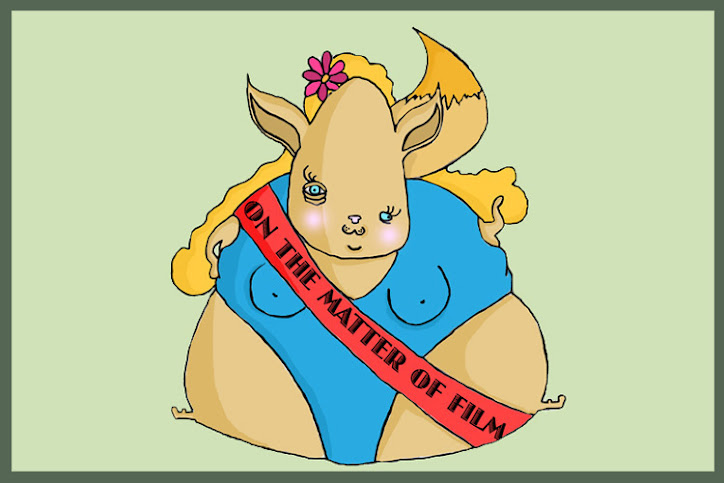 "Diary of a Country Priest" follows closely Claude Laydu and the tormenting personal crises that come from the burden of dealing with a mistrusting, angry congregation. He is a physically ill, socially meek boy of a man. His pale skin and deep black cloak give him a Death-like appearance as he runs, stumbles or rides across the countryside. He constantly struggles to maintain his faith, and convince the townspeople that his convictions are truly the words of God. He is a highly sympathetic figure. This film has given me reason to rethink the role religion plays in my life, and the potential good a healthy dose of faith can do in the world. "Diary" is moving. It is important. It is somewhat of a masterpiece.
"Diary of a Country Priest" follows closely Claude Laydu and the tormenting personal crises that come from the burden of dealing with a mistrusting, angry congregation. He is a physically ill, socially meek boy of a man. His pale skin and deep black cloak give him a Death-like appearance as he runs, stumbles or rides across the countryside. He constantly struggles to maintain his faith, and convince the townspeople that his convictions are truly the words of God. He is a highly sympathetic figure. This film has given me reason to rethink the role religion plays in my life, and the potential good a healthy dose of faith can do in the world. "Diary" is moving. It is important. It is somewhat of a masterpiece.Robert Bresson is an oddity of a French director in that his name is not Jean, or Jacques. He is also masterful at using frame-within-frame to convey a character's emotional strife. Laydu is framed by almost everything imaginable: doorways, hallways, house windows, door windows, roof windows, roads, gates, walls, darkness of a confessional booth, you name it, he used it.
 Laydu is trapped by shame, doubt, guilt and confusion throughout the film. He tries to steer others away from drowning their lives in revenge plots and bitterness. He is considered weak for stating his mind. He has very few confidants, and with every lesson he preaches, seemingly a new enemy is formed. His successes very quickly become failures. Through it all, even though it gets shaky at times, his faith is maintained. He gives one of the most humbling performances I've ever witnessed, putting to shame many actors playing characters straight out of the Bible.
Laydu is trapped by shame, doubt, guilt and confusion throughout the film. He tries to steer others away from drowning their lives in revenge plots and bitterness. He is considered weak for stating his mind. He has very few confidants, and with every lesson he preaches, seemingly a new enemy is formed. His successes very quickly become failures. Through it all, even though it gets shaky at times, his faith is maintained. He gives one of the most humbling performances I've ever witnessed, putting to shame many actors playing characters straight out of the Bible.Sound is something Bresson wields with gusto. Much of the film is devoted to the narration of Laydu from his diary, and his dialogue with the minor characters, so when a scene is given over to silence, or the score alone, the affect is startling. All is given an air of suspense, and it's really a matter of unheard dissonance. And, when the screen dissolves to black, but speaking is still heard, the words are given unbelievable power.
There was so much to enjoy about this film, and it left me feeling more fulfilled than nearly every other film I've watched over winter break. That's a lot to compete with. Robert Bresson is one of my absolute favorite French filmmakers, and he reiterated why in "Diary" with flying colors. That wasn't a funny note, but, he doesn't need it.
- Eric T. Voigt, Enough French for Now


No comments:
Post a Comment